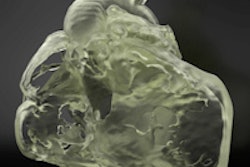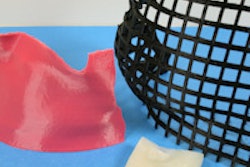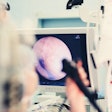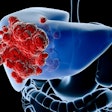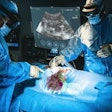Sunday, November 29 | 1:00 p.m.-1:30 p.m. | IN104-ED-SUB8 | Lakeside Learning Center, Station 8
3D printing combined with volumetric analysis of breasts with 3D reconstruction is poised to completely reshape breast cancer care, according to this Sunday presentation.Volumetric analysis of the breasts with 3D reconstruction and 3D-printed models can improve accuracy in preoperative planning and operative flap harvest, reducing complications and surgical time, wrote the group from Brigham and Women's Hospital. It also improves patient experience and even the psychological impact of breast cancer treatment.
"Breast reconstruction is an integral part of breast cancer management and has been shown to positively impact the patient's psychosocial adjustment and quality of life," radiologist and presenter Dr. Tatiana Kelil told AuntMinnie.com by email. "After a woman undergoes mastectomy, current methods used to determine the volume and contour of the contralateral breast and the size of the matching flap or implant used for reconstruction are subjective and usually inaccurate."
That inaccuracy means that secondary procedures are often required to improve symmetry. In current practice, harvested flaps are serially excised until optimal symmetry with the contralateral breast is achieved, leading to intraoperative tissue plane alterations, fat necrosis, and poor surgical outcomes, she noted.
"Volumetric analysis of the breasts through the use of 3D reconstruction and 3D-printed models enables improved accuracy in preoperative planning and operative flap harvest, yielding symmetric, natural-appearing breasts," Kelil said.
The printed models can also be used as cutting guides to reshape the flap intraoperatively, minimizing fat necrosis and reducing both operating and sedation time for the patient.
Bioprinting of live skin and fat cells is also being investigated "to potentially improve nipple reconstruction and fat grafting of lumpectomy sites, in addition to its uses in surgical reconstruction," she said. 3D printing can also be used to create patient-specific brachytherapy templates and customized radiotherapy shields and boluses, which allow homogeneous distribution of radiation dose to the targeted area while sparing adjacent normal tissues.
"3D printing is poised to revolutionize breast reconstruction surgery and radiation therapy and play an important role in providing personalized care to our patients," Kelil said.






